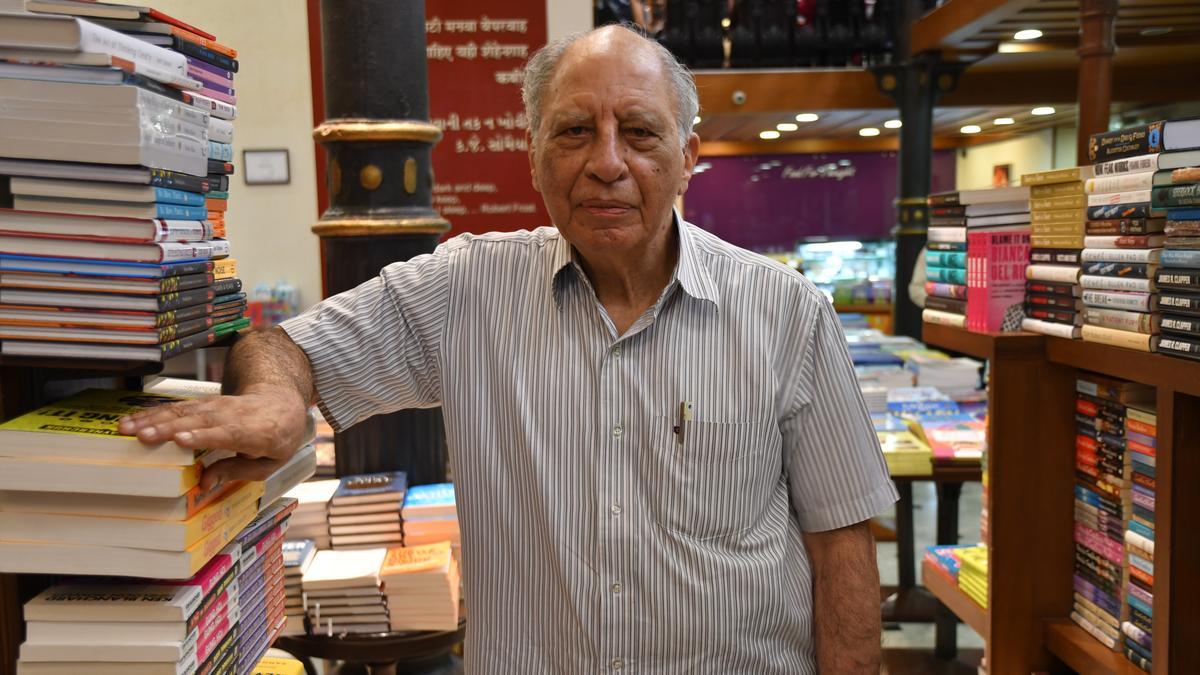
W.H. Auden’s poem ‘In Memory of W.B. Yeats’ begins thus:
Time that is intolerant
Of the brave and the innocent
And indifferent in a week
To a beautiful physique
Worships language and forgives
Everyone by whom it lives…
The enduring legacy of a literary giant is often a testament to their profound understanding and meticulous use of words. Keki N. Daruwalla, a luminary in Indian literature, recognized this truth deeply. His impressive oeuvre of 15 poetry collections and 10 works of short and long fiction stands as a testament to his dedication and command over language. Daruwalla’s work is characterized by its wide-ranging themes and clear vision, underpinned by a robust philosophical outlook.
My journey with Keki N. Daruwalla stretches back over four decades. Although I was aware of him as a contemporary and a colleague of my father in the Indian Police Service, our paths intertwined more personally when my debut novel, Paro, was published in 1984. Receiving rave international reviews yet facing unexpected hostility from the domestic literary scene, I found an unexpected ally in Keki. That same year, he received the prestigious Sahitya Akademi award for his poetry collection, The Keeper of the Dead. His thoughtful and fair-minded review of my work in The Indian Express not only defended me but also sparked a treasured friendship.
Reflecting on Keki’s legacy, it’s vital to recount his milestones—his profound poetry, his gripping novels, and his compelling short stories. Daruwalla’s literary journey began with his first collection of verse, Under Orion, published in 1970 by P. Lal. This debut was only the beginning; he went on to publish 14 more poetry collections, the latest being Landfall in 2022. His mastery extended to short stories, with seven collections gracing bookshelves, the most recent being Going, also from 2022. This collection starts with ‘The Brahmaputra Trilogy,’ a narrative rich in its exploration of race, identity, and the remnants of British colonialism.
In 2014, Keki N. Daruwalla’s distinguished contributions to literature were honored with the Padma Shri, India’s fourth-highest civilian award, a moment of pride captured with President Pranab Mukherjee bestowing the accolade.
His skill wasn’t confined to poetry alone. Daruwalla’s novels—For Pepper and Christ (2009), Ancestral Affairs (2015), and Swerving to Solitude (2018)—each display his keen understanding of narrative structure and socio-political insight. His prose mirrored the complexity and breadth of his poetry, documenting the recent history of India with a clear yet profound style.
In 2022, during one of our many discussions, Keki shared with me a manuscript of what could be his final novel, Alexandria and The Fallen Priest. This ambitious project exuded vibrancy and authority in its narrative voice.
. Despite his attempts at further revisions and retrieval of missing portions, the work remains unpublished, a fate I hope will soon change. He had also embarked on another fiction piece set in ancient India, adding to his extensive and diversified portfolio.
Keki’s commitment to writing was unwavering. His regular output of poetry, often peppered with contemporary observations, extended to social media, where he engaged with an emerging generation of poets. His generosity in providing introductions and blurbs for their works established a legacy of kindness and mentorship.
Numerous memories of laughter, generosity, and genuine connection with Keki have been shared with me by friends and colleagues. A particularly fond memory is from an evening roughly two years ago when author Devapriya Roy and I visited him in his Delhi residence. The conversation, spanning his latest book Going and old photographs, was interspersed with Keki’s trademark sharp wit. He offered a fine bottle of cognac reserved for special moments, allowing us to bask in the warmth of friendship and light-hearted banter.
Keki’s strong foundation in his Zoroastrian faith, coupled with his deep understanding of Indian and global contexts, painted him as a truly cosmopolitan individual. His career in police and intelligence services, along with his tenure at the National Commission for Minorities, offered him insights into the contradictions and dilemmas of the ‘real’ world. Despite facing personal tragedies, including the loss of his wife, Keki remained gentle, humane, and idealistic. His quiet integrity, a quality we often took for granted, is sorely missed now.
While curating this tribute, I unearthed an unpublished poem Keki had sent me on October 2, 2021, titled ‘Prayer’. Its words resonate deeply, encapsulating his hopes and fears for our times.
Prayer
Let not the harsh winds of our times
blow love away.
Let not the harsh winds of our times
blow our perceptions into a wall
behind which people are sharpening knives.
Let not the harsh dreams of our times
devour us, along with our appetites.
Lead us from this landscape of rubble
to water, but let the sound be real —
even traffic sounds like surf at night.
And let water remain water
and not turn to blood.
…Let the repressed be brought into light,
the hidden into knowledge.
Let there be harmony
between those who speak of shadows
and those who speak of the sun.
Let the unlit be lit.
Steer the light our way.
Let the forest leaf.
Let the lyric leaf.
This poem, like all his work, reflects Keki’s deep contemplation and hope for harmony and understanding in a world rife with conflict. The literary world mourns the loss of a stalwart, whose words will continue to inspire and guide future generations.












